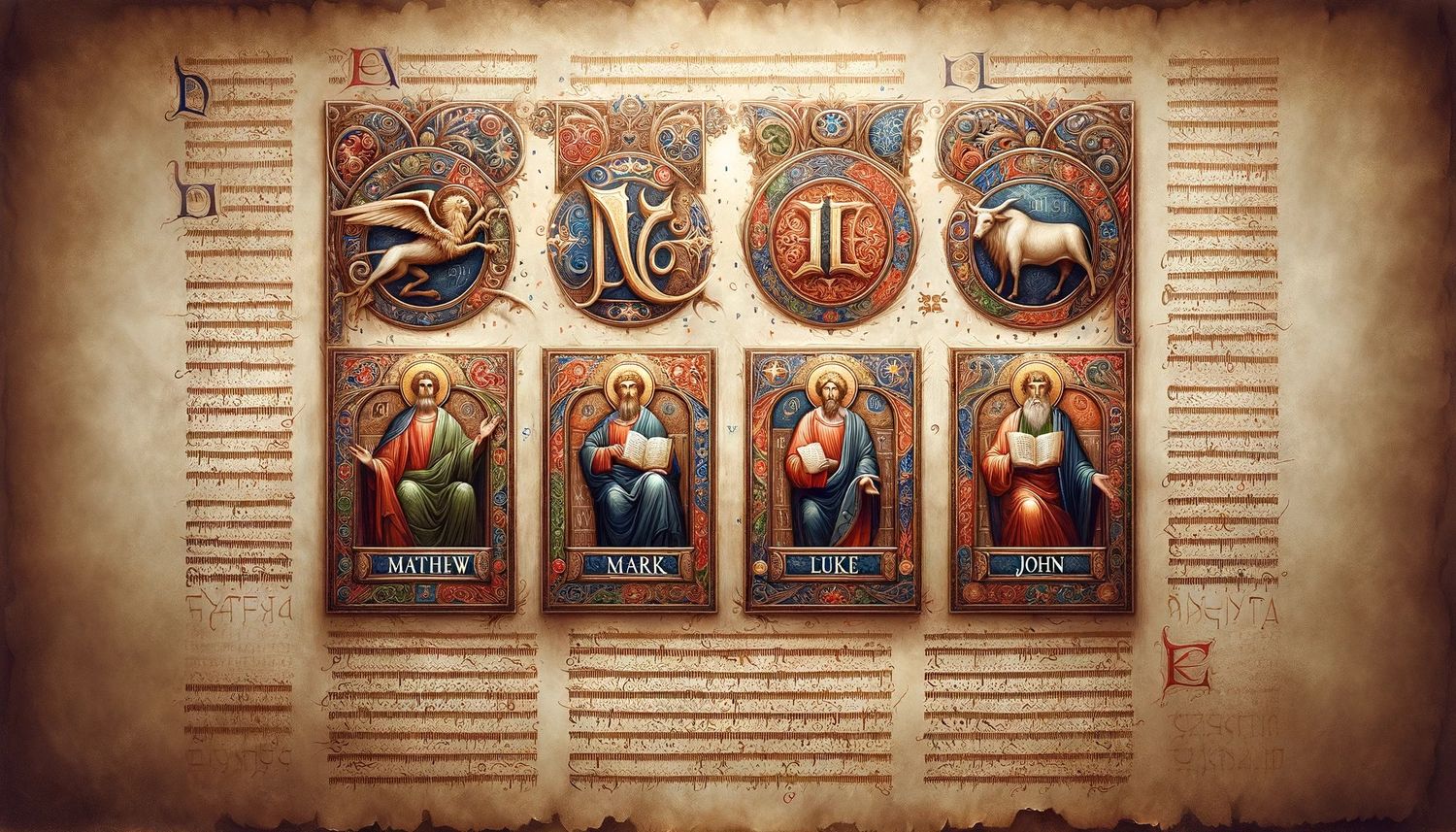Home>Theology and Spirituality>How Many Times Is Baptism Mentioned In The Bible


Theology and Spirituality
How Many Times Is Baptism Mentioned In The Bible
Published: March 2, 2024
Peter Smith, Editorial Director at Christian.net, combines deep insights into faith, politics, and culture to lead content creation that resonates widely. Awarded for his contributions to religious discourse, he previously headed a major organization for religious communicators, enhancing dialogue on faith's societal impacts.
Discover the significance of baptism in the Bible and its relevance to theology and spirituality. Explore the mentions of baptism throughout the scriptures.
(Many of the links in this article redirect to a specific reviewed product. Your purchase of these products through affiliate links helps to generate commission for Christian.net, at no extra cost. Learn more)
Table of Contents
Introduction
How many times is baptism mentioned in the Bible? This is a question that has intrigued many scholars and believers alike. Baptism is a significant rite in Christianity, symbolizing the cleansing of sins and the initiation into the faith. The act of baptism is deeply rooted in the teachings of the Bible, and its significance is reflected in the numerous mentions of it throughout the sacred text. In this article, we will explore the references to baptism in both the Old and New Testaments, delve into the symbolism and meaning of baptism, and examine the different views on this sacred rite within Christianity. So, let's embark on this enlightening journey through the biblical references to baptism and unravel its profound significance.
Read more: How Many Times Is Baptism Mentioned In Acts
Baptism in the Old Testament
-
Ceremonial Washings: In the Old Testament, there are several instances of ceremonial washings that bear resemblance to the concept of baptism. For example, in Leviticus 16:4, Aaron is instructed to wash himself with water before entering the tabernacle, signifying purification before approaching the presence of God. These ceremonial washings were symbolic of cleansing and spiritual purification, foreshadowing the concept of baptism in the New Testament.
-
The Flood and the Ark: The story of Noah's Ark in Genesis 6-9 can also be seen as a symbolic precursor to baptism. The floodwaters that cleansed the earth of wickedness can be likened to the cleansing waters of baptism, and the ark can be seen as a symbol of salvation, much like the spiritual rebirth that baptism represents.
-
The Crossing of the Red Sea: Another significant event in the Old Testament that bears resemblance to baptism is the crossing of the Red Sea by the Israelites. In 1 Corinthians 10:1-2, the apostle Paul refers to this event as a type of baptism, symbolizing the Israelites' deliverance from bondage and their initiation into a new life of freedom.
-
Prophetic References: The Old Testament also contains prophetic references to the cleansing and renewal that would be brought about by God in the future. For example, in Ezekiel 36:25-27, God promises to cleanse His people with water, symbolizing a spiritual purification that is reminiscent of the concept of baptism.
The Old Testament lays the foundation for the concept of baptism through various symbolic events and prophetic references, setting the stage for its fulfillment and deeper understanding in the New Testament.
Baptism in the New Testament
-
John the Baptist: The New Testament introduces the concept of baptism through the ministry of John the Baptist. John's baptism, as described in the Gospels, was a baptism of repentance for the forgiveness of sins. It marked a turning point in the lives of those who sought spiritual renewal and prepared the way for the coming of Jesus Christ.
-
Jesus' Baptism: The baptism of Jesus himself is a pivotal event in the New Testament. When Jesus was baptized by John in the Jordan River, it signified the beginning of his public ministry and was accompanied by the powerful symbolism of the Holy Spirit descending like a dove and the voice from heaven declaring, "This is my beloved Son, with whom I am well pleased." This event not only affirmed Jesus' identity but also demonstrated the significance of baptism as a spiritual initiation.
-
The Great Commission: In the Gospel of Matthew, Jesus instructs his disciples to baptize believers in the name of the Father, the Son, and the Holy Spirit, thereby establishing baptism as a central practice within the Christian faith. This command, known as the Great Commission, emphasizes the importance of baptism as a symbol of discipleship and the believer's identification with the triune God.
-
Baptism in the Early Church: The book of Acts records numerous accounts of baptism in the early Christian community. On the day of Pentecost, Peter exhorted the crowd to "repent and be baptized" for the forgiveness of sins, leading to the baptism of about three thousand people. Throughout the book of Acts, baptism is portrayed as an integral part of the conversion experience, symbolizing the washing away of sins and the reception of the Holy Spirit.
-
Paul's Teachings on Baptism: The apostle Paul's letters provide further insight into the significance of baptism. In Romans 6:3-4, Paul illustrates the spiritual reality of baptism, likening it to a participation in Christ's death and resurrection, symbolizing the believer's newness of life. He emphasizes the transformative nature of baptism, highlighting the union of the believer with Christ in his death and resurrection.
The New Testament presents baptism as a multifaceted and profound sacrament, intimately connected to the ministry of John the Baptist, the life and teachings of Jesus, the early Christian community, and the theological reflections of the apostle Paul. These references collectively underscore the central role of baptism in the Christian faith and its rich symbolism as a rite of initiation, purification, and spiritual rebirth.
Symbolism and Meaning of Baptism
-
Cleansing and Purification: Baptism symbolizes the cleansing of sins and spiritual purification. Just as water physically cleanses the body, baptism is seen as a spiritual cleansing that washes away sin and initiates a new life of righteousness and holiness.
-
Death and Resurrection: The act of immersion in water during baptism symbolizes the believer's identification with the death and burial of Jesus Christ, while emerging from the water represents participation in Christ's resurrection. This symbolism signifies the believer's spiritual death to sin and resurrection to a new life in Christ.
-
Initiation and New Birth: Baptism serves as an initiation into the Christian faith and signifies the believer's new birth as a child of God. It marks the beginning of a transformed life and a commitment to following Christ.
-
Union with Christ: Baptism symbolizes the believer's union with Christ and incorporation into the body of Christ, the Church. It signifies participation in the death, burial, and resurrection of Jesus, as well as the believer's identification with the community of faith.
-
Reception of the Holy Spirit: In many Christian traditions, baptism is associated with the reception of the Holy Spirit. Just as the Holy Spirit descended upon Jesus at his baptism, believers are believed to receive the indwelling presence of the Holy Spirit through the sacrament of baptism.
-
Public Declaration of Faith: Baptism is a public declaration of one's faith in Christ and commitment to the Christian community. It serves as a testimony to one's decision to follow Jesus and is often witnessed by the congregation, signifying the individual's inclusion in the larger body of believers.
-
Sealing of God's Covenant: In some Christian traditions, baptism is viewed as a sign and seal of God's covenant with the believer. It represents God's faithfulness and the believer's response of faith, marking the beginning of a covenant relationship with God.
-
Transformation and Renewal: Baptism symbolizes the believer's transformation and renewal through the power of the Holy Spirit. It represents a turning away from the old life of sin and a commitment to living a life characterized by faith, obedience, and spiritual growth.
The symbolism and meaning of baptism are rich and multifaceted, reflecting the profound spiritual realities it represents in the life of the believer. It is a sacred rite that encapsulates the core tenets of the Christian faith and serves as a visible sign of God's redemptive work in the lives of those who undergo this symbolic act.
Different Views on Baptism in Christianity
-
Baptism as a Sacrament: In many Christian traditions, such as Catholicism, Eastern Orthodoxy, and Anglicanism, baptism is considered one of the seven sacraments. It is believed to be an outward and visible sign of an inward and spiritual grace, conveying God's saving presence and initiating the individual into the life of the Church. In these traditions, baptism is often administered to infants as a means of incorporating them into the community of faith and marking their entrance into the covenant relationship with God.
-
Believer's Baptism: On the other hand, some Christian denominations, including Baptists, Pentecostals, and many nondenominational churches, practice believer's baptism, which emphasizes the conscious decision of the individual to follow Christ. According to this view, baptism is reserved for those who have personally professed faith in Jesus Christ and have undergone a conversion experience. It is seen as a public testimony of one's faith and a symbol of personal commitment to Christ and His teachings.
-
Mode of Baptism: Another point of divergence among Christian traditions is the mode of baptism. While some churches practice immersion, wherein the individual is fully immersed in water, others practice affusion or pouring, and still, others practice aspersion or sprinkling. The mode of baptism often reflects theological convictions about the symbolism and efficacy of the sacrament, with immersion symbolizing death and resurrection, pouring symbolizing the outpouring of the Holy Spirit, and sprinkling symbolizing purification.
-
Regenerative vs. Symbolic: The theological understanding of the effect of baptism also varies among Christian denominations. Some hold to the belief in baptismal regeneration, which teaches that baptism is necessary for salvation and conveys the forgiveness of sins and spiritual rebirth. Others view baptism as a symbolic act that represents the believer's inward faith and commitment but does not in itself confer grace or regeneration. This difference in perspective has been a point of theological debate throughout Christian history.
-
Ecumenical Dialogue: In recent years, ecumenical dialogue among different Christian traditions has sought to find common ground on the theology and practice of baptism. Efforts to recognize the validity of each other's baptismal practices and to emphasize the essential unity of all believers in Christ have been significant steps toward fostering greater understanding and cooperation among diverse Christian communities.
-
Personal Reflection and Practice: Beyond denominational differences, individual believers often have their own personal perspectives on baptism, shaped by their spiritual experiences, theological studies, and personal encounters with the sacred rite. Some may view baptism as a deeply transformative and spiritually significant event in their lives, while others may approach it with a more contemplative and introspective attitude.
The diversity of views on baptism within Christianity reflects the richness and complexity of the Christian tradition, encompassing a wide spectrum of theological, historical, and cultural perspectives. While differences exist, the shared recognition of baptism as a central and sacred rite underscores its enduring significance in the life of the Church and the spiritual journey of believers.
Conclusion
In conclusion, the mention of baptism in the Bible is not only frequent but also deeply significant, spanning both the Old and New Testaments. The Old Testament lays the groundwork for the concept of baptism through symbolic events and prophetic references, while the New Testament expounds on its spiritual significance through the ministry of John the Baptist, the baptism of Jesus, and the teachings of the apostles. The symbolism and meaning of baptism are rich and multifaceted, encapsulating themes of cleansing, initiation, union with Christ, and spiritual renewal. Furthermore, the diverse views on baptism within Christianity reflect the theological, historical, and cultural complexities of the Christian tradition. Despite these differences, the shared recognition of baptism as a central and sacred rite underscores its enduring significance in the life of the Church and the spiritual journey of believers. As believers continue to explore and contemplate the profound implications of baptism, its timeless relevance as a symbol of faith, transformation, and communal identity remains a cornerstone of the Christian faith.














